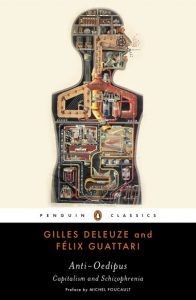
It is strange days when we see Japanese schoolchildren running for their lives in simulation of a nuclear attack from North Korea. The picture in the linked article reminds me of nothing more than Cold War evacuation drills in the US.
Selfishly, as an anime fan I wonder how all this uncertainty is going to affect the anime industry. I never thought the threat of nuclear conflict would figure into my estimation of when we could expect season 3 of Attack on Titan, but here we are.
It’s jarring to think of these things when thinking of anime, which, let’s face it, is mostly just escapist fantasy, like most mass entertainments are. I’m reminded that Jane Austen joked about being tempted to include a treatise on Napoleon in Pride and Prejudice just to counteract how light and frothy her novel was. I’m also reminded of what Slavoj Zizek said about the use of the Christian calendar, which uses the birth of Christ to mark the flow of events: he called it the irruption of the infinite into the historical. Perhaps we might call the imposition of nuclear geopolitics into the logic of anime production as the irruption of the political into the inconsequential.
Of course, this statement is both facetious and incorrect, for anime is already political. It is produced in a web of politics -government grants to aid in translating content for export, industry-wide discrimination to discourage women, a regime of austerity that encourages overwork of animators, and a capitalist ideology that demands crass commercialism – and also expresses statements of political positions – women are always emotional, Chinese and foreign characters can never beat Japanese protagonists, and Koreans don’t exist.
The surprise we feel when placing anime in the same headspace as nuclear diplomacy is a surprise that has been manufactured. Being apolitical is a political stance, and depoliticization is a political action. To divide the world and say these things are of politics and these things are not is an act of power (Michel Foucault called it power/knowledge, which is the power of defining what knowledge is).
The personal may be political, but it’s inconvenient for the powerful to let common citizen remember this fact. Politics is not merely debating tax rates and talking at town halls, which is to say it’s not only for politicians and activists, but keeping it an activity of a small elite certainly makes it easier for those elites to set the agenda. Political apathy serves those who already have power.
And so we come to anime and its role in the politics of apathy. Crudely speaking, anime is just another cog in the machinery of distraction that keeps the masses quiescent in that old Roman strategy of panem et circenses (i.e., bread and circuses). Focus on your pop culture, say the masters of the world, and leave the important things to us. This was, of course, the old politics, before the divisions in democracy were laid so starkly bare, but it was a deal that many thought worthwhile, and many still do.
But even behind this wall of willful ignorance, sometimes the world of politics would intrude, as in the current case of North Korea and its nuclear arsenal threatening the home of anime. We find that we cannot leave politics because we are already doing politics. We are reminded that we live in a political world. The personal is political, but now we see that the reverse is also true, that the political is also personal. In a liberal democracy, to not resist is to consent. Therefore if we wish not to die and to continue watching anime, we must act.
Action begins in knowledge, so I ask first that you learn what is happening around you. What circumstances led to the nuclear standoff threatening our beloved hobby? What power moved us to this impasse?
After answering these questions for yourself, then ask yourself this one: am I okay with things continuing the way they are?
If your answer is anything besides “yes”, then continue asking questions, including the big one – what should I do? The answer is simple: do anything that you can. Speech is action, so even something as minimal as talking online is still a step in the right direction.
My fellow otaku, ignorance is only a temporary condition. I challenge you to look up from your TV and computer screens. Remember that you are not only a consumer. You are also a citizen.

